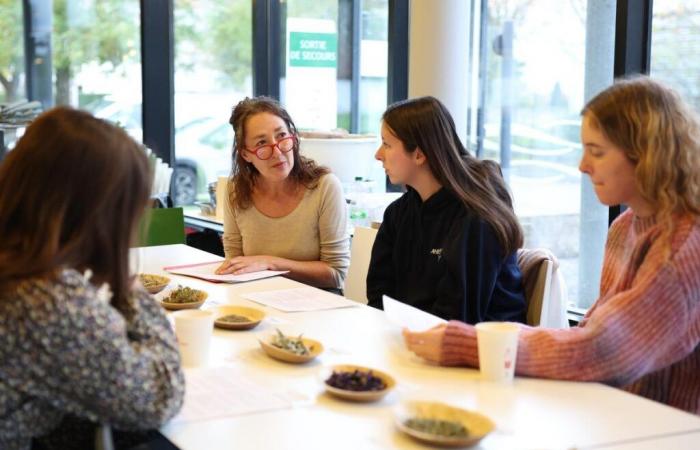“I am shocked to see students coming out of pharmacies with bills of 50 euros. »
1. Don’t shower too hot
This may come as a surprise, but when temperatures are very low, you should not take showers that are too hot. “It will dry out the skin and make it more vulnerable,” explains Annaïg Freret, one of the facilitators. In winter, the cold dehydrates it. Even if it is less instinctive than in summer, it is important to hydrate well by drinking on average 1.5 liters of water per day. Hand and body creams are also essentials that “can be found in supermarkets,” insists Nathalie Cosnard, nurse in the health service. I am shocked to see students coming out of pharmacies with bills for 50 euros. For some it’s the monthly food budget. »
2. Plants, protection against influenza
To fight against colds and flu symptoms, plants are good allies. “Number 1 is thyme,” assures Sandra Collon, host of a herbal tea stand and producer in Vienne. It is effective in cases of fever, cough and sore throat. No need to go buy a syrup for 15 euros in a pharmacy which is often not reimbursed. » The professional gives the recipe for her “magic potion”: cut lemon slices, peel a piece of ginger about 4 cm before grating it and cutting it into thin slices. Pour everything into a container then add three sprigs of chopped fresh thyme. Pour half of the honey, complete the other half with water. Mix the preparation well, which will gradually thin out.
3. A hot water bottle for a few cents
Depending on the size and material, the price of a hot water bottle varies from 5 to 25 euros. A cost for a student budget when it is possible to make one. Simply take a cotton sock, fill it with rice and sew the end (or tie a knot). Then put it in the microwave for a minute, watching for any risk of overheating.
Health




